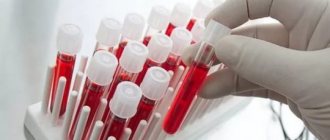Donating blood is a noble cause and, of course, very useful for those who urgently need it. Donors are always in demand. Many people need their help: people with blood diseases, people involved in accidents, victims of disasters, women giving birth, patients undergoing surgical operations.
But what about those who give it away regularly? Surely every person who decided to become a donor was looking for an answer to the question of whether donating blood is harmful. Transfusiologists assure that this is completely safe for the health of the donor if all the rules are followed. Thus, to the question of whether it is useful to donate blood and plasma, doctors give a positive answer.
Why isn't it harmful?
As you know, no more than 450-500 ml can be taken from a donor at a time, which does not have any negative effect on the body. Moreover, the law establishes the frequency of testing: for women no more than 4 times a year, for men no more than 5 times. The interval between procedures when donating whole blood should not be less than two months. If you donate plasma, then for at least one month.
The human body is capable of self-healing. The volume that is donated in one procedure is replenished without consequences in two weeks or a month, which is why you cannot donate more often. If a person comes to the transfusion point for the first time, they may take half the norm.
"No one is safe"
Murad Ibragimov is a future dentist. He is finishing his fifth year and preparing to enter residency.
“The first time I donated blood was in my first year. At first I joined the Nadezhda donor squad as a volunteer. I liked the movement and became interested. Since then, I have been donating blood during every campaign for four years now,” says Murad.
The young man actively encourages his acquaintances and friends to become donors.
“Life is such a thing that no one is immune from the fact that an accident will happen to their relatives or loved ones when they need a blood transfusion. This needs to be realized. Almost all of my classmates and acquaintances were donors or tried to become one. Sometimes there are exceptions - low hemoglobin or other indications. But everyone tried, and everyone wanted. And many succeeded,” says Murad Ibragimov.
Why is it useful?
Doctors say that donating blood is useful for the following reasons:
- Donation reduces the risk of developing cardiovascular diseases. This is especially true for men, who are susceptible to them even at a young age.
- The body is being renewed.
- The work of the hematopoietic system is stimulated.
- The body's immune defense improves.
- The body adapts to periodic blood loss, which will alleviate the condition in the event of an accident or injury.
- Serves as a prevention of liver and spleen diseases.
- The donor's life expectancy increases by 5-7 years.
- It is useful to donate blood to women after 40 years of age. During this period, changes occur in the body associated with the approach of menopause; donors tolerate its symptoms much easier.
- Moral satisfaction from the benefit brought.
- The donor gets two days off.
“I want to become an honorary donor”
Elizaveta Chervyakova is a third-year student at the Moscow State Medical and Dental University named after A.I. Evdokimova, future general practitioner. In less than three years, she has already donated blood six times. Even earlier, the girl became a university activist and organizer of similar events.
“I found out that we have a donor movement at our university, I joined it, was an organizer, waited until I was allowed to donate blood according to all indications, and became a donor. I was really, really looking forward to this day,” says Elizaveta.
The girl plans to become an honorary donor in Moscow, and then in Russia. To do this, you need to donate blood 20 and then 40 times, respectively. University events take place every six months, so Elizaveta goes to the blood station at the N.V. Research Institute of Emergency Medicine. Sklifosovsky.
“For those who regularly donate blood, it recovers and regenerates faster. When donating, the body gets used to the fact that it can continue to function during blood loss. I initially chose a profession that would save lives. Since I don't have any qualifications yet, I'm looking for some other ways to help people. And donating blood is one of these measures,” says Elizaveta Chervyakova.
Why is it safe?
Many believe that even if the body does not suffer in any way when donating blood, there is always a danger of contracting infectious diseases through instruments. Nowadays, such a probability is practically zero. During the procedure, only disposable instruments are used, which are opened directly in front of the donor. In addition, they are manufactured in such a way that they cannot be reused. It is best to donate blood or plasma in a modern facility that uses the latest equipment.
During the procedure, donors are in comfortable conditions; all instruments and materials used are disposable only.
In order to feel normal after the procedure, you need to follow the doctors’ recommendations, that is, eat right before donating blood, lead a healthy lifestyle and get a good night’s sleep. After donation, in order not to faint, you should drink sweet tea or juice and sit quietly in a relaxed state. It is best to stay at the blood transfusion station for an hour in case medical attention is needed. Over the next two days, you need to eat nutritiously in order to recover faster. If you feel unwell, it is not recommended to donate blood, and there is no need to hide your condition from the doctor. If you follow these simple rules, the procedure does not pose any danger. You can learn about the rules and preparation for donating blood from this article.
Day in History: Blood Donor
On June 14, 1868, future Nobel laureate Karl Landsteiner was born in Vienna. In 1901, he was able to explain why, when one person's blood is added to another person's blood, the mixture sometimes coagulates and sometimes does not. In other words, Landsteiner was the first to divide blood groups according to the “AB0” system and came up with instructions, following which doctors were able to carry out blood transfusions (blood transfusions) without fear for the patient’s life.
Later, followers clarified and supplemented the works of the Austrian, and today transfusion has become an even safer procedure that has saved millions of lives around the world. The heroes of this victory over death were donors - people who, for the most part, donated the treasured red liquid to strangers of their blood type. And World Blood Donor Day, which is celebrated on June 14, is their holiday.
Surprisingly, with the dizzying pace of medical progress, we have not yet come up with a full-fledged blood substitute that eliminates the need for donor blood. Just like a hundred years ago, the best way to save a patient dying from blood loss is to administer to him a portion of liquid, the recipe for which is reliably preserved by nature.
Perhaps you've never donated blood and haven't thought about how important it is. Here are 10 medical facts that may influence your stance on this issue.
Donating blood is good for the heart
Regular bleeding prevents blood from thickening, which means it reduces the likelihood of blood clots. Myocardial infarctions occur 88% less frequently in regular donors.
Blood donation reduces cancer risk
Blood is the main depot of iron in the body, and this microelement significantly increases the amount of free radicals that provoke the occurrence of malignant tumors. When you donate blood, you reduce the amount of iron in your body and therefore significantly reduce the likelihood of developing cancer.
You can skip training on the day you donate blood.
If the feeling of moral satisfaction from going to the Blood Center is not enough for you, think about the fact that every 500 ml of blood donated means the consumption of approximately 650 calories. That's more than you can burn in 30 minutes of running!
Each blood donation gives you two additional days off.
Another pleasant bonus for donors is that, by law, everyone who donates blood is entitled to leave work on the day of the procedure, as well as on any other day of your choice. Moreover, it is not necessary to “spend” the weekend right away - by donating blood regularly, you can, for example, extend your annual vacation well!
By donating blood, you undergo a free medical examination
Before undergoing the procedure, each donor consults with a general practitioner, tests for AIDS, hepatitis B and C, as well as general blood counts. This is a good way to monitor your health and save on regular medical examinations!
Honorary donors of Russia are entitled to pleasant benefits
If you donate blood 40–60 times (depending on the type of procedure), you will be awarded the title “Honorary Donor.” People with such a certificate annually receive a cash payment of 13 thousand rubles, a 50% discount on prescription medications and on public transport, as well as preferential vouchers to sanatoriums, vacation at a convenient time, reduced rent rates and some other options that depend from the region of residence.
Most of the blood from transfusion stations is used to help cancer patients
Contrary to popular belief, only 2% of blood donations are given to car accident victims and other trauma patients. People from oncohematology departments require much more blood transfusions - their own blood, affected by tumors, cannot cope with its functions.
The biggest shortage of blood in hospitals is during the holidays
On weekends, it is customary to do your own thing rather than go to hospitals, so the number of blood donors during the holidays decreases and hospitals often experience a shortage of donated blood and its components. Please keep this in mind when choosing a time to visit the Transfusion Center.
The most popular blood type is the first positive
In fact, hemobanks need blood supplies of absolutely all groups - after all, at present, patients are transfused only with blood that is as similar in parameters as possible to their own. But since 45% of people have the first group and a positive Rh factor, doctors need this blood most often.
Blood donation is not the only way to share your health with others
Now in Russia there is a very acute problem of shortage of bone marrow donors. Contrary to prejudices, bone marrow donation is not accompanied by extremely painful manipulations to remove hematopoietic cells from the bones: the use of special medications makes it very similar to regular blood donation. In order to become a volunteer and enter the registry of bone marrow donors, it is enough to take a routine blood test, the results of which doctors will be able to refer to when they are looking for a donor for the next patient. The chance that your bone marrow will be suitable for any patient is just over 0.2%.
More information about bone marrow donation can be found on the website of the National Registry of Bone Marrow Donors named after Vasya Perevoshchikov.
Olga Kashubina
Photo istockphoto.com
Possible harm
Most doctors claim that donation is good for the health of the person donating blood, and there is no question of any harm, as long as there are no contraindications and all the rules for donation are followed. The only disadvantages could be considered a minor wound from an injection on the arm and the time spent. This is where the so-called harm ends, the rest is benefit.
There is an opinion that regular donation changes metabolism, and a person cannot do without it, otherwise his health may worsen.
Contraindications
— What diseases prevent people from becoming blood donors?
— People from 18 years of age to any age can donate blood if there are no contraindications in the form of serious illnesses, somatic diseases, hepatitis, infectious diseases, or vegetative-vascular dystonia. Temporary contraindications are allergic diseases in the acute stage, pregnancy, menstruation, and taking antibiotics.
Sometimes the peculiarity of the structure of the veins can become an obstacle, because donation means donating blood in a fairly large volume and the veins must be pronounced. If there are no these contraindications, then a person can be a donor even at 70 years old. We even have several donors who have crossed the 70-year mark, mostly career plasma donors who have been donating for a very long time. Partly due to their active donor position, they maintain health and vitality.
Photo: AiF / Lyudmila Alekseeva
Avoid stroke
— Tell us about the benefits of donation for humans.
— The benefits of donation are undeniable. In human donors, the incidence of cardiovascular diseases, in particular strokes, is significantly reduced, because the blood is actively renewed. Our regular donors of both blood and plasma, especially men, are better protected from vascular accidents.
In addition, any donation is, although mild, stress for the body. And it has been proven that the presence of just such mild stress increases a person’s resistance to the effects of adverse environmental factors.
Thanks to donation, blood cells are regularly renewed, because they too tend to age. Usually their natural restoration occurs, and in donors this process occurs with greater frequency. There is a theory that the female body is more resistant to negative external factors precisely because monthly blood loss occurs.
Article on the topic
Olga Mayorova: “Donor blood is not a medicine, it cannot be bought at a pharmacy.” Donation is very useful in the presence of a genetic disease - hemochromatosis, associated with the accumulation of iron, the excretion of which is impaired. In the United States, half of blood donors are people with this hereditary disease. For them, one of the physiological ways of treatment is bloodletting, which makes them physically feel better.
Another category is people with high levels of cholesterol and fats in plasma. Everyone knows that in this case plasmapheresis is used for treatment and prevention. In commercial clinics, this procedure is quite expensive. But not everyone knows that donor plasmapheresis is almost the same procedure.
People who have crossed 50 and 60 years of age are very active in donating plasma simply because they feel good afterwards. Donation allows you to prolong youth and lead an active lifestyle.
Don't forget about the psychological factor. Donation is a confirmation of one’s own importance; people experience great moral satisfaction. These are lives saved.
In addition, donors are a certain club, especially plasma donors, who come on the same days, at the same time. Acquaintances are made, which is important given the shortage of direct communication today due to the rise of social networks.
By the way, if your loved one or just a new acquaintance of the opposite sex you like is a personnel donor, then anything is possible with him, because he is obviously healthy. After all, being a donor with a frequency of 2 weeks, a person receives testing for the most complex and severe diseases.
Blood transfusion: why is it needed and why is it dangerous?
Read more








